This is 55: Author Jennifer Kabat Responds to The Oldster Magazine Questionnaire
"Aging has given me a sense of presence in a place, which only happens with time."
From the time I was 10, I’ve been obsessed with what it means to grow older. I’m curious about what it means to others, of all ages, and so I invite them to take “The Oldster Magazine Questionnaire.”
Here, author responds. -Sari Botton
P.S. A reminder that in my book, everyone who is alive and aging is considered an Oldster, and that every contributor to this magazine is the oldest they have ever been, which is interesting new territory for them—and interesting to me, the 58-year-old who publishes this. Oldster is an ongoing study of the experience of aging at every phase of life.
When you see a piece featuring someone younger than you, try to remember when you were that age and how monumental it felt. Bring some curiosity to reading about how the person being featured is experiencing that age. Or, if you prefer, wait for the next piece featuring someone in your age group. (I just published an essay by 70something Judith Hannah Weiss on Monday.) Not every piece will speak to every reader. I’m doing my best to cover a lot of ground and to foster intergenerational conversation. Please work with me.
Jennifer Kabat’s diptych THE EIGHTH MOON and NIGHTSHINING are being published by Milkweed Editions in 2024 and 2025. She’s been awarded a Warhol Foundation Arts Writers Grant for her criticism, and the books were supported by grants from the Silvers Foundation and NYFA. Her essays and criticism have appeared in 4 Columns, Frieze, Granta, The White Review, BOMB, Harper’s, The Believer, and McSweeney’s as well as The Best American Essays. She lives in rural New York, serves in her local fire department and teaches in the Design Research MA program at SVA.
--
How old are you?
I’m 55.
I was born in the cataclysms of the late 1960s. I only learned just before my mom died that she was terrified of the world into which she was bringing a child. She would rock me to sleep as a newborn and worry about what was to come. I think that moment is pressed into my body. Between her getting pregnant and her delivering, Robert Kennedy and Martin Luther King Jr were assassinated, and my older sisters got teargassed at antiwar protests. Also, my aunt and uncle married in Virginia when I was a toddler. The wedding came four years after overturning Loving v. Virginia. Somehow, I feel like time, those times, they are held in me. I was also raised in a modernist glass house, and modernism’s dream is that things—objects and architecture—shape those who use them. When I was a baby, my mom would hold me in a Danish modern teak rocking chair, and these moments and places are in me, are part of how I see the world, not just context but something more. I also still have that chair and read in it when I have insomnia (like last night). And it is still a comfort to me.
Is there another age you associate with yourself in your mind? If so, what is it? And why, do you think?
Seventeen and 33. I was a goth punk teen, wearing black and dreaming of living in a different age and era. It was like a LARP before any actual live action role play, or at least before we called it that. I had a weird crush too on both Adrienne Rich and John Ruskin. (Eventually I moved to London at 30 and ended up living in what was his neighborhood). I also as a teen dreamed of growing up and being an art history professor. By 17 I’d decided I was a better art critic than artist. How weird is that to shut off a possibility and make such decisions? But I couldn’t quite picture myself in the pale, male art-star realm which was how I understood contemporary art then.
So, I had this dream of specializing in 19th century American art, which I didn’t even particularly like. But it seemed so uncool it was recoverable… So, I spent my late teens looking at a lot of Hudson River School painting. Then zoom forward and at 33, I move from the UK to the Catskills, to the landscape of those paintings. Here too in the Catskills everything changed for me, came into bloom. I’d always been someone who befriended the sidewalk weeds. In Brixton, where I lived, I was hyper-focused on the brambles in the park near my house and when they would fruit. (The time always coincided with a friend’s suicide). Moving here to the mountains, somehow the way time was held in plants and place, and I could attune to micro seasons seemed like the time in which I wanted to live. Or, in which I came alive, but also in which all time comes alive to me outside of linear time.
I was also raised in a modernist glass house, and modernism’s dream is that things—objects and architecture—shape those who use them. When I was a baby, my mom would hold me in a Danish modern teak rocking chair, and these moments and places are in me, are part of how I see the world, not just context but something more.
Do you feel old for your age? Young for your age? Just right? Are you in step with your peers?
Wow, what a question. I think young? I mean, I am just publishing my first book, and somehow I feel late to the party, which also makes me feel young (and old, being late). And I feel like the thinking in The Eighth Moon—a strange time-skipping logic (that latter line about “time-skipping” comes from Adrian Shirk who wrote on utopias in the gorgeous Heaven is a Place on Earth) feels relevant as a way to live in the past and be present, or to be in our present. I want this polytemporality to overturn the Western fiction of linear chronology, and in that also to find new ways to deal with capitalism and the climate, which are ever interlinked.
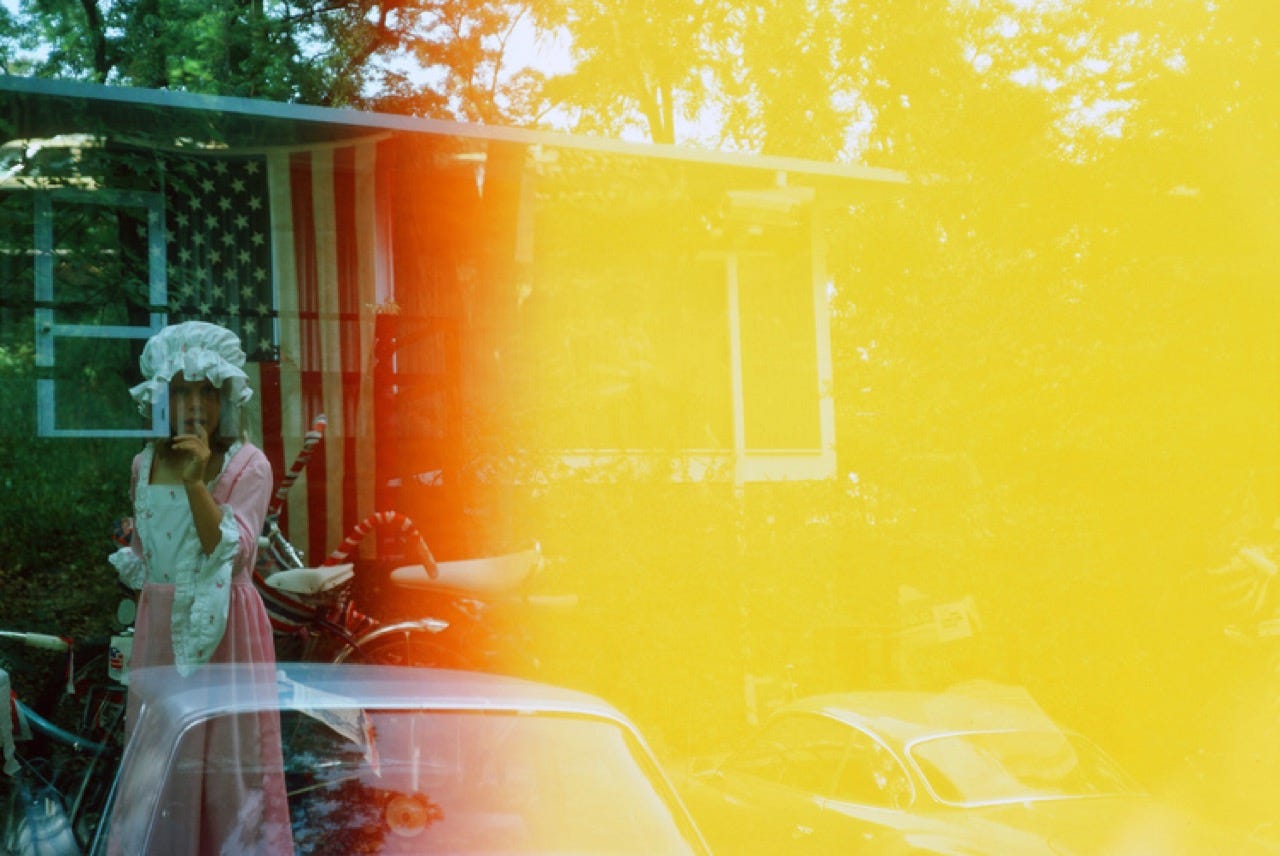
What do you like about being your age?
A wildly psychedelic appreciation of time. I think often of Elizabeth Hardwick’s Sleepless Nights which she wrote in the 1970s, starting with an essay in the New York Review of Books in the early ‘70s and finally published as a book in 1979. It’s a divorce novel, also what we’d call now auto-fiction, but in it, time is dimensional and all at once. I think that experience happens in middle age. Time goes from the urgency of youth to this strange way that memory holds moments together in a bricolage, so they are simultaneous. I love that. I wouldn’t trade that for the world even as I find the idea of aging, of middle age, of being a middle-aged woman in America who is only publishing her first book, odd. (That said I will soon be a middle-aged woman in America with two books out so maybe I will be catching up quickly. The Eighth Moon is half of a diptych. The second book in the pair Nightshining is out in May 2025.)
Time is dimensional and all at once. I think that experience happens in middle age. Time goes from the urgency of youth to this strange way that memory holds moments together in a bricolage, so they are simultaneous. I love that. I wouldn’t trade that for the world even as I find the idea of aging, of middle age, of being a middle-aged woman in America who is only publishing her first book, odd.
What is difficult about being your age?
Well, I am into sports. I typed and untyped “I’m a jock,” but then decided that phrase was too weird. I was never athletic as a kid. I was bookish (see above crushes on Adrienne Rich and Ruskin), and I rejected sports and refused to play them. Now I ski. A lot. I learned to when I moved to the mountains. And I cycle far. I think about a dear friend who was a New York City firefighter and is retired, and he is like, “Your 50s are the best; you’re still athletic but then it changes.” I don’t want to lose these sports—or an ability to huck myself down hills at velocity.
Then there is everything else around aging, the language and the fear I have of it. Which is why I like Oldster. I love how you are transforming that narrative. {ed. note: 🙏🙏🙏} Maybe by typing this I can change my own perceptions and worries? I also like the strange hormone shifts of age, that one’s identity can change with that. It feels like a way to shift how one is in a body or a gender, or that these things are mutable at different points in life.
What is surprising about being your age, or different from what you expected, based on what you were told?
I just remember being in my early 20s in NYC, and most of my friends were in their 30s and they seemed so adult, even as they were making experimental film and writing and performance. Or, at least, their age made them seem distant, like grown-ups. Then when I started to teach, I wondered about my students’ perceptions of my age and how I had seen professors. So, it’s strange to be an age that once felt old and distant (in fact beyond what I saw as old and distant). Now this age does not feel as I once perceived it. I also remember being in my late teens and early twenties and dreaming of being an old woman. In my mind she was out picking wildflowers and living in some rural place and not really giving a damn, not worried about career or future. And voila! Though in the original dream there was way more thrift shop clothing than in my current life. In my current version there are Carhartt coveralls. And ticks. The fantasy came with no vector borne diseases.
What has aging given you? Taken away from you?
It has taken away so much anxiety. I used to have so much fear of influence, so much need to achieve something that I didn’t really have language for, that just seemed like “doing important work.” Now I see how all the moments in my life dot together, but they don’t just feel like mine. This feels like some constellation that I move in, which includes land and place and neighbors, the deer nearby, the plants, the special rare ones that I prize—the gentians—and the weeds, too. Feeling like this extended landscape of life is a world. Aging has given me a sense of presence in a place, which only happens with time.
I remember being in my late teens and early twenties and dreaming of being an old woman. In my mind she was out picking wildflowers and living in some rural place and not really giving a damn, not worried about career or future. And voila! Though in the original dream there was way more thrift shop clothing than in my current life. In my current version there are Carhartt coveralls. And ticks. The fantasy came with no vector borne diseases.
How has getting older affected your sense of yourself, or your identity?
I loved Sheila Heti’s Pure Colour which is a book about that question. It’s a story about grieving father and climate and also this idea of mattering, of making work that matters, of having art that transcends. I love how Heti’s protagonist realized that it only matters for this work to have existed, to have happened, and in the novel the main character comes to that understanding through her father’s death. (Her experience of it is profoundly trippy and beautiful).
Living in a small rural community there are things I value too that I could never have imagined like being in the volunteer fire department and showing up as part of a group where I just follow orders and do what I am told. The work it is not about me, or reputational, or whatever. I also like making experimental work in a small community that is just supposed to matter in that community.
The story I tell myself about who I am and how I see myself through time—that goth punk teen; the person out in a field or going to punk shows and dreaming of being an art historian—all of that makes sense now. It all feels like the person who I am. Perspective, that is the word for it.
What are some age-related milestones you are looking forward to? Or ones you “missed,” and might try to reach later, off-schedule, according to our culture and its expectations?
I wasn’t athletic as a kid. My school tried to get me to play field hockey and I was like, I’m too punk rock for those kilts and sticks and teams. I didn’t ski or anything like that. My family believed skiing was the sport of the elite. (And how elite are field hockey and skiing?? But what amazes me typing this are how those dictates about sports sound; both come with a kind of fierce rejection and alienation). So, as an adult I feel like I’m recovering that athletic part of myself. It requires some bravery too that wasn’t part of my childhood. I was a delicate kid who was often sick and scared of being hurt. Part of these sports is learning to have a different relationship with risks. (I think too I’m still working to reject the social anxiety/alienation I grew up with).
I have this dream of quitting adjuncting and becoming a ski instructor out West, which is definitely off-schedule. This is what people do at 20, not 55… The sad fact of adjunct labor is that with tips, I’d probably earn more as a ski instructor. But I really like classrooms and ideas and sharing thinking and hearing students get jazzed about their research. I really love being in others’ creative and intellectual projects, so I probably won’t quit. But you know, maybe? Each year I promise myself this is the year.
What has been your favorite age so far, and why? Would you go back to this age if you could?
Right now. Today. Despite my insomnia last night. I like everything but the number.
As an adult I feel like I’m recovering that athletic part of myself. It requires some bravery too that wasn’t part of my childhood. I was a delicate kid who was often sick and scared of being hurt. Part of these sports is learning to have a different relationship with risks.
Is there someone who is older than you, who makes growing older inspiring to you? Who is your aging idol and why?
Definitely my friend Tom, the retired firefighter I mentioned above. He’s just my hero in every way. (Tom, if you’re reading this, please forgive my waxing on about you). He and his wife Bridget make age look awesome. I think of the things I was scared of— relevance and ability. Tom and Bridget show that you can have these at least into your 70s. (So too did Peter Schjeldahl, who only just seemed to get rolling as a critic at like 40, I think. His constant engagement in ideas and art and writing was an inspiration. He never seemed old. He could also kick my ass at mini golf).
Back to Tom and Bridget: Tom teaches skiing at Vail—in fact was the oldest person who became a level-3 ski instructor there. But he is also the only person who for years happened on my work in the wild, because he reads Granta and Harper’s and The Best American Essays. In this moment where we seem to wall off certain classes or kinds of work from an engagement in ideas, he defies that and has his whole life. He was a New York City firefighter and is heroic, though will never talk about that. He was at 9/11. He is a liberal progressive and union member. He never went to four-year college, and he is one of the best readers I know. Also he hails from a previous version of NYC that is impossible now. Tom grew up in and around his family’s Greek diner. Bridget is a former Irish nun. She also reads more than he does, and he spent years going to night school at NYU. Anyway, I idolize them for our friendship but also sometimes turn them into totems of possibility in our world for how they defy these narratives. Also they are the best dinner companions.
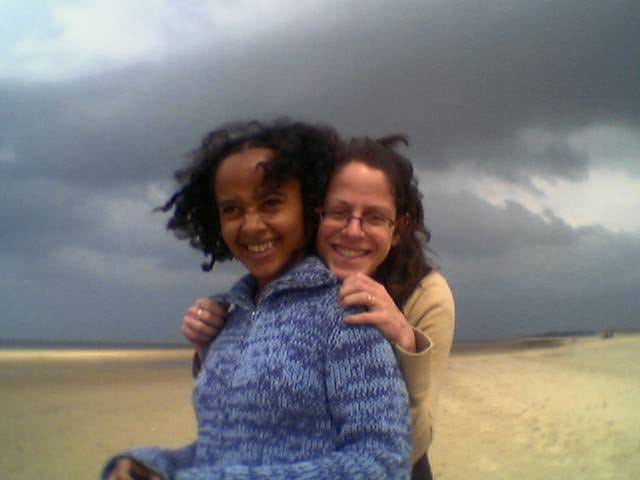
What aging-related adjustments have you recently made, style-wise, beauty-wise, health-wise?
Beauty flummoxes me. Makeup? It feels so strange—like how much and what? It always feels like too much, like some mask. (I also can’t believe I’m typing this as it has only been the silent dialogue in my mind.) I want to figure it out. Maybe too it is that my body feels less feminine, which I like.
What’s an aging-related adjustment you refuse to make, and why?
I don’t actually know?? There are things sure, maybe, but I can’t think of one. Can we tk this for, like, forever?
What’s your philosophy on celebrating birthdays as an adult? How do you celebrate yours?
I hate birthdays. They make me anxious. My favorite ones were in the pandemic. My birthday fell the first week of lockdown. We dug a ditch around our apple trees that had wet feet. The labor was distracting and held the world and fear at bay for those moments of moving rock and clay soil. Then my husband made a cake which happened to be trying to recreate the birthday cake of my youth (tunnel of fudge). It was so sweet we couldn’t eat it and had insane sugar highs. How my parents handled a bunch of kids stoned on this I will never know. I think what was profound in that moment were the prism of things together in the helplessness and fear and how those emotions heightened everything.
The other pandemic-era birthday I loved was in 2022 driving from the airport in Salt Lake to Wyoming to visit my BFF (and still best friend) from kindergarten to ski with her. Mary is a nurse in Jackson. We drove through LaBarge (a one-horse town with a good general store and great picture advertising joining their volunteer fire department). I texted that to another LaBarge, Emily La Barge, a writer in London. She turns out to be related to this LaBarge, and the moment held the lovely intimacies of linked friendships: the best friend in Wyoming I was traveling to and the newer friend in London, both of them were getting knit to this place, plus my husband in the car next to me, this small town and its VFD, and also sending pics of their sign to my chief in my fire department. That day was special simply for how it wove all these times and places together. Plus, on that road trip (like all road trips) I felt like I could eat countless peanut M&Ms.




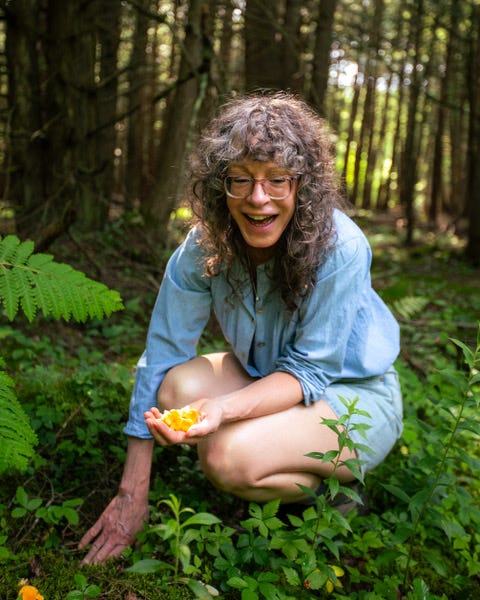

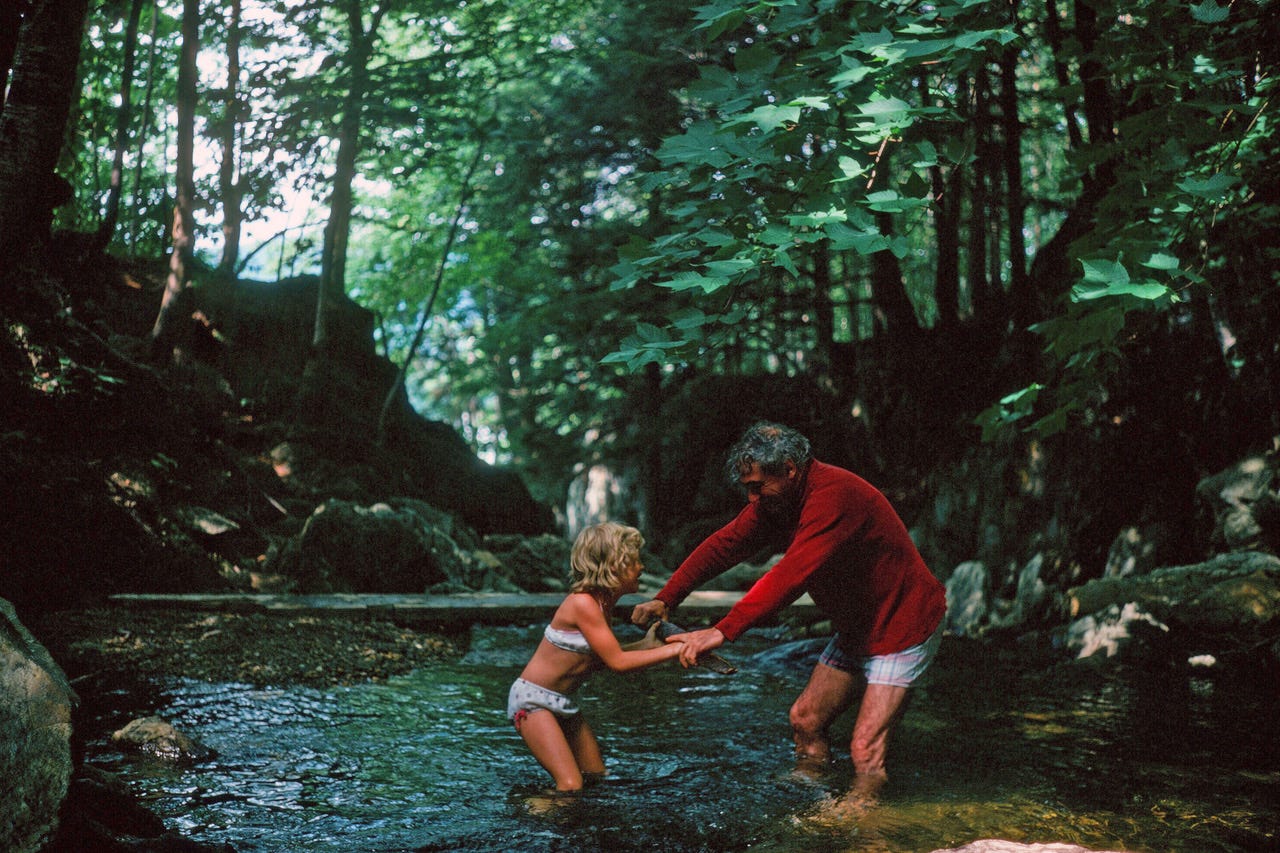
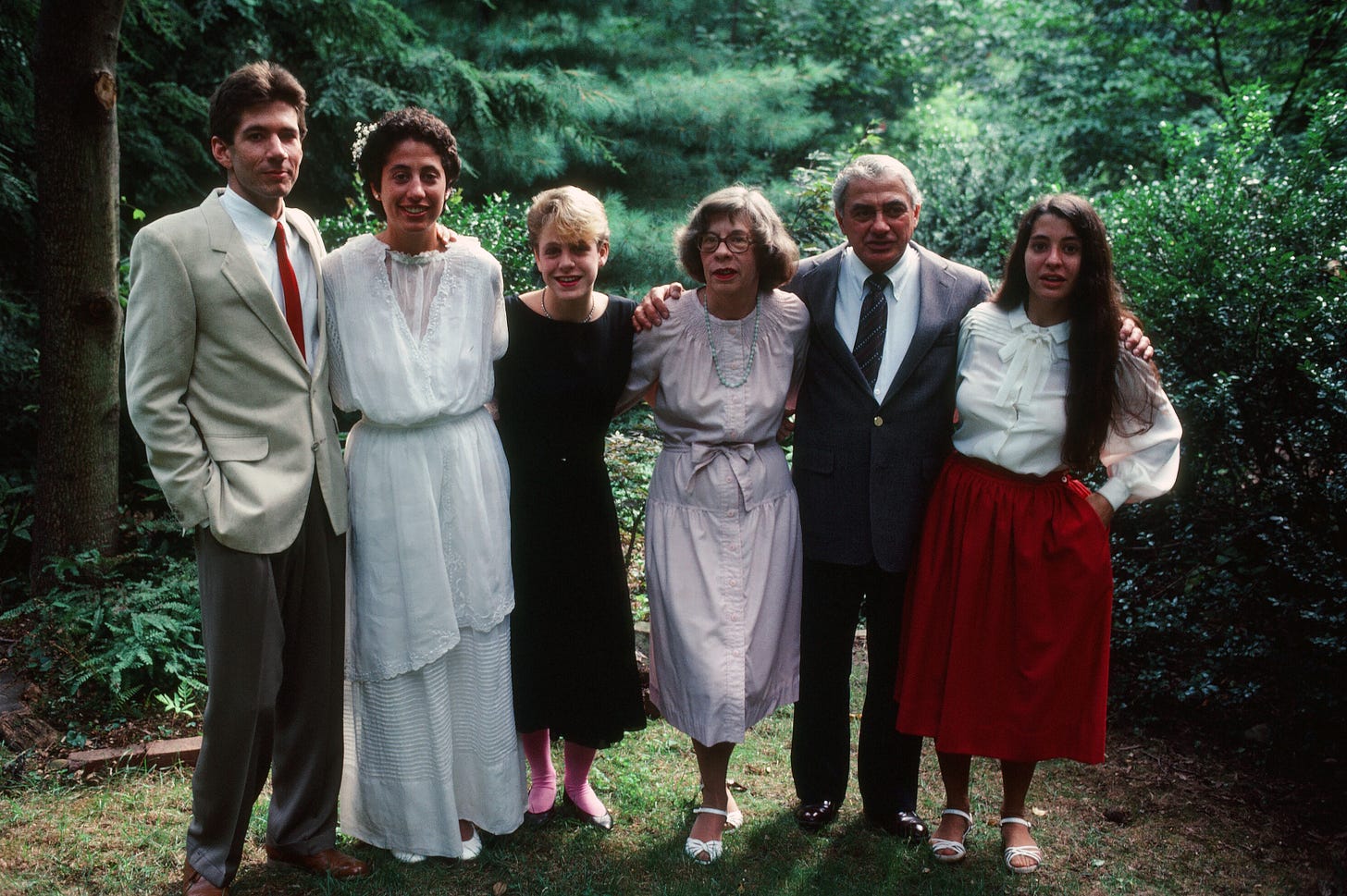
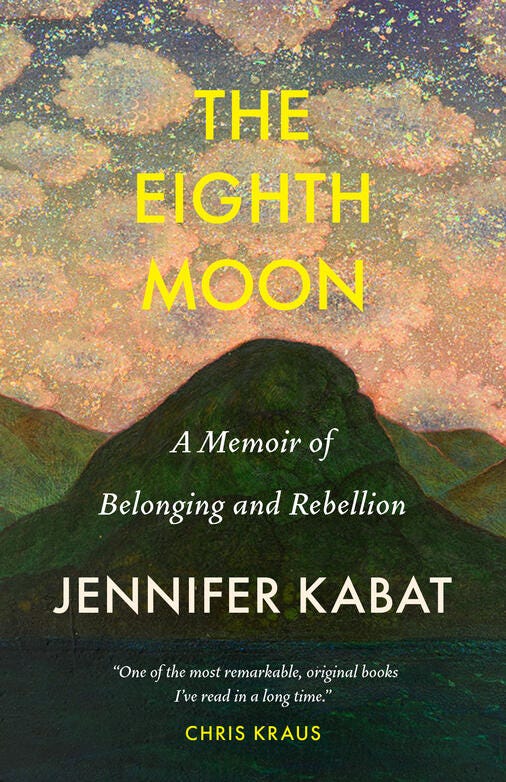
“Moving here to the mountains, somehow the way time was held in plants and place, and I could attune to micro seasons seemed like the time in which I wanted to live. Or, in which I came alive, but also in which all time comes alive to me outside of linear time.”
I love this experience and description of finding your place. I feel this too in the mountains of the west, as if I am immersed in the land.
"This feels like some constellation that I move in, which includes land and place and neighbors, the deer nearby, the plants, the special rare ones that I prize—the gentians—and the weeds, too."
Beautiful! Thank you Jennifer. Putting into words how I feel.
How bout an interview with Tom and Bridget!?